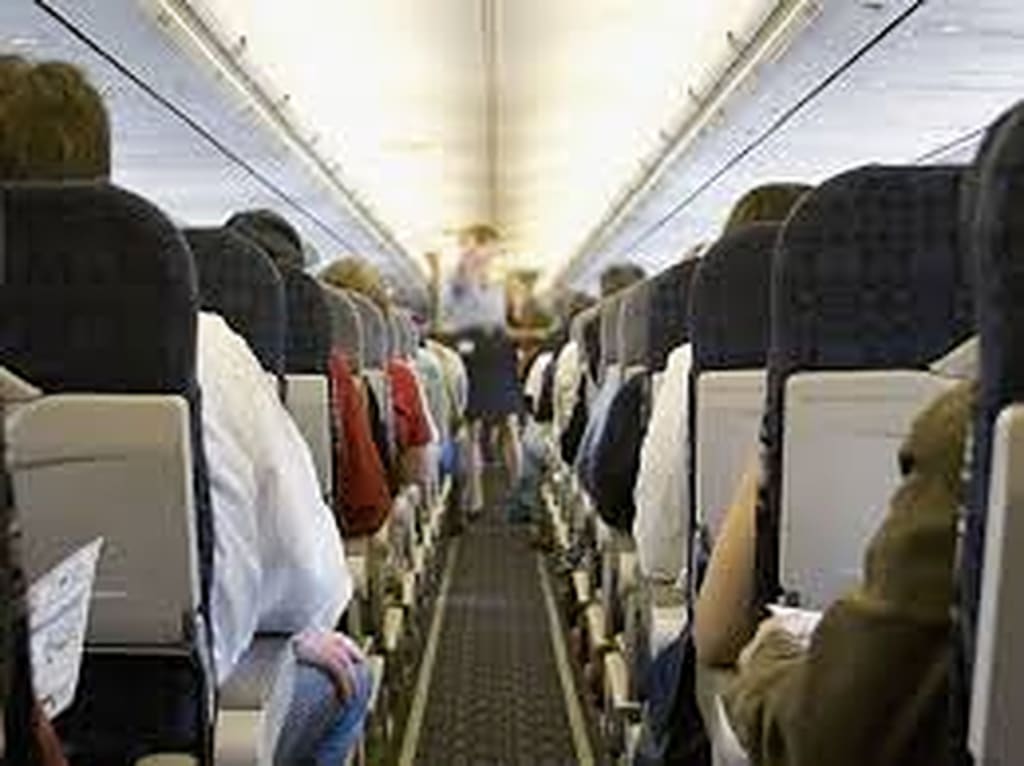Content warning
This story may contain sensitive material or discuss topics that some readers may find distressing. Reader discretion is advised. The views and opinions expressed in this story are those of the author and do not necessarily reflect the official policy or position of Vocal.
Don't Do These Things || The Unwritten Rules of Air Travel
If you often travel by plane, you probably think you know everything about it. But even experienced flyers sometimes forget some simple rules that can make your flight more enjoyable. Always secure your tray table as soon as the plane starts moving on the tarmac, and never lower it during takeoff and landing. Try to avoid snoozing during or right after takeoff and landing. It's important to be alert during this time to relax and open up your ears – for example, by yawning or swallowing frequently. It's probably better if you don’t order Coke on a plane.

Introduction: Flying has undoubtedly become routine for many travelers, but even frequent flyers might not be aware of certain things they should never do on a plane. Whether you're a seasoned jet-setter or a first-time traveler, adhering to these essential guidelines will ensure a safe and pleasant flight for you and your fellow passengers. From personal hygiene to cabin safety, let's explore the 12 crucial tips to make your air travel experience smooth and hassle-free.
1. Keep Your Feet Covered: One of the biggest no-nos of air travel is going barefoot on the plane. Not only can it lead to unpleasant odors, but the airplane floor is also an ideal breeding ground for germs. Previous passengers might have left behind dirt and bacteria, making it essential to avoid walking the aisles without proper footwear. If you crave some foot freedom, consider wearing socks or bringing along a pair of light slippers.
2. Stay Alert During Takeoff and Landing: Always be attentive during takeoff and landing, as these phases are critical for flight safety. Keeping your seat in an upright position and securing the tray table are security measures that ensure a clear pathway in case of an emergency evacuation. Additionally, avoiding snoozing during these phases helps protect your ears from rapid air pressure changes and ensures you're alert in the event of an emergency.
3. Skip on Hot Drinks: While in-flight coffee or tea might be tempting, think twice before indulging. The water used to make these beverages comes from airplane water tanks, which can contain harmful bacteria. If you still want a warm drink, let the trained flight attendants handle the pouring in crowded aisles to prevent accidental burns.
4. Utilize Air Vents and Wipe Down Tray Tables: Keep the air vent above your seat open to minimize the spread of germs. Airplanes have high-quality air filters that effectively capture airborne particles, making the cabin air safe to breathe. However, be sure to clean your tray table, as it can harbor eight times more bacteria than the toilet flush button.
5. Choose Proper Footwear: Avoid backless sandals and high heels on flights, as they can hinder quick evacuation during emergencies. Sturdy shoes with solid soles are the safest choice and will protect your feet during any unforeseen circumstances.
6. Secure Heavy Items Properly: When storing carry-on items in the overhead compartments, ensure they are securely placed to prevent injuries during turbulence. If lifting them feels difficult, consider storing them under the seat in front of you.
7. Understand Hard Landings in Bad Weather: In adverse weather conditions, pilots might execute hard landings intentionally to break through water or snow on the runway. This ensures better traction and prevents aquaplaning, ultimately enhancing passenger safety.
8. Avoid Deploying Emergency Slides: Never activate emergency slides without a genuine emergency situation. Misusing them can lead to costly delays and inconveniences for everyone involved.
9. Follow Cabin Crew Instructions: Cooperate with the cabin crew at all times, including following their directive to open window shades during takeoff and landing. This aids them in assessing the situation outside and expediting emergency evacuations if needed.
10. Pack Carry-Ons Wisely: Refrain from carrying spray deodorants or shaving cream in your carry-on baggage, as these items tend to explode during flights. Stick deodorants are a safer alternative. Also, ensure your power bank's capacity does not exceed twenty thousand milliamps, and avoid using them during the flight to reduce the risk of fire hazards.
11. Respectful Behavior: Remember that you're sharing the flight with other passengers and the cabin crew. Be considerate, polite, and mindful of personal space, and refrain from causing disruptions or discomfort to those around you.
12. Never Attempt to Land a Plane: It's crucial to debunk the myth perpetuated by movies that an untrained individual can successfully land a commercial passenger airplane. In reality, such attempts would be highly dangerous due to stress and lack of experience, making it best to leave such matters to the capable hands of professional pilots.





Comments
There are no comments for this story
Be the first to respond and start the conversation.